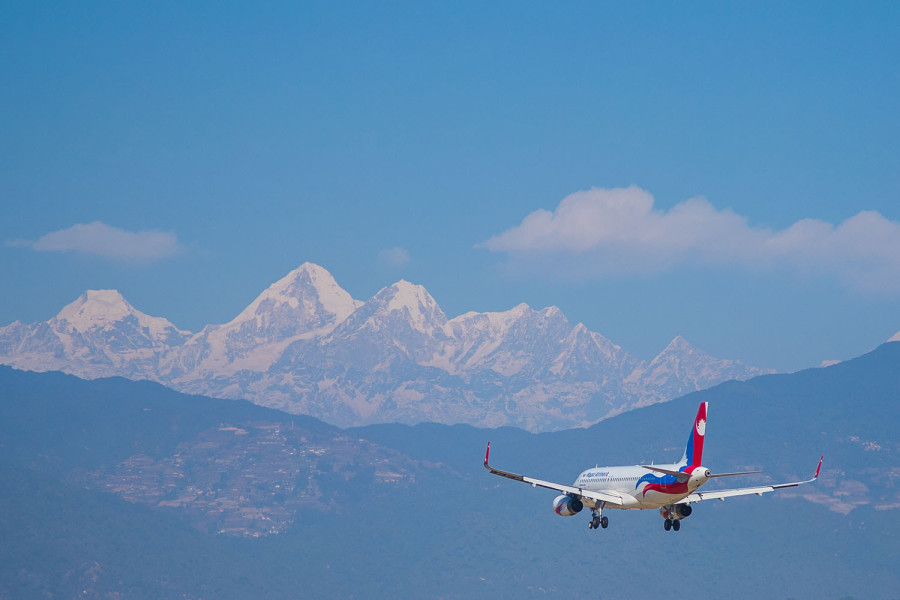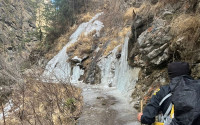National
As coronavirus infections fall, Nepal relaxes restrictions for arrivals
Fully vaccinated need not stay in hotel quarantine and can self isolate at home. For the non-vaccinated mandatory hotel quarantine has been reduced to seven days from 10 days earlier.
Sangam Prasain
Nepal has eased travel protocols allowing fully vaccinated arrivals to isolate at home and has also cut the mandatory 10 days hotel quarantine to seven days for those who have not been vaccinated.
Nepal has also allowed a limited number of scheduled international flights following a drop in the Covid-19 cases in the country. Nepal on Monday reported 1,509 new coronavirus cases in the last 24 hours down from a high of 9,317 on May 11.
“The new rules approved by the Cabinet on June 21 has been implemented and are applicable for both Nepalis and foreigners entering Nepal,” Pratap Babu Tiwari, general manager at the Tribhuvan International Airport, told the Post.
He said that fully vaccinated travellers should stay in home isolation for 10 days.
According to him, all travellers to Nepal need to submit a photo attached barcode or quick response (QR) code, including a negative PCR report from within 72 hours before departure, at the check-in counters.
These codes are based on a combination of data and information submitted by the users themselves.
However, if the country of origin does not issue a photo attached barcode or QR code documents, it should follow the rules of the country by coordinating with the Nepalis diplomatic mission abroad.
Travellers coming to Nepal have to fill up details in the Abroad Returnee Management System at the Covid-19 Crisis Management Centre (CCMC) website.
In case it is not possible to fill the details before check-in, the concerned airlines in coordination with Nepal’s Tourism Ministry should arrange to fill the relevant form at the Tribhuvan International Airport before the health screening test upon landing in Nepal.
Upon arrival, incoming passengers, provided they get through the health screening, have to spend seven days in quarantine at government-listed hotels and rooms must be booked prior to arrival.
Returning Nepali migrant workers who have no hotel booking should mandatorily stay at the quarantine facilities made available by the government.
Nepali nationals need to do a PCR test on the seventh day of quarantine at their own expense and if the report is negative they are allowed to go home. They, however, have to stay an additional four days in home isolation.
In the case of Nepalis who have been deported, are returning home after being released from jail or who don't have enough finances, Nepali diplomatic missions will investigate and recommend them for government support. They will be kept in quarantine in government facilities and all expenses related to their trip and PCR test will be borne by the government.
Those coming for mourning will be allowed to go home after a negative antigen test but need the recommendation of the local government or the Covid-19 Crisis Management Centre. But they have to do a PCR test 11 days after arrival.
People with disability, sickness and other long-term illness, or chronic health conditions and their carers [maximum of two], will be sent for 10 days’ home isolation or hospital after an antigen test if they have the necessary health reports.
Those above 70 years, children below 5 and their travelling carers are allowed to go home if their antigen test is negative. After spending 10 days in home isolation, they have to do a PCR test on the 11th day of arrival.
Those coming for mourning, the disabled or ill, those over 70 years and below 5 years and their carers will be sent to the government isolation centres or hospitals if their antigen test is positive.
Members of the diplomatic community and international organisations and their family members are allowed to spend 10 days at quarantine arranged by their respective offices or organizations. They are allowed to work after 10 days if they tested negative.
The government has not allowed foreigners entry from the land points.
However, 13 land entry points have been opened for returning Nepalis.
The government has announced prohibitory orders in most parts of the country at the end of April to help check the spread of the virus as the second wave of the pandemic hit Nepal. Prohibitory orders continue to be in place but have been relaxed since last week to allow movement of people and operation of businesses following health protocols.




 11.84°C Kathmandu
11.84°C Kathmandu













